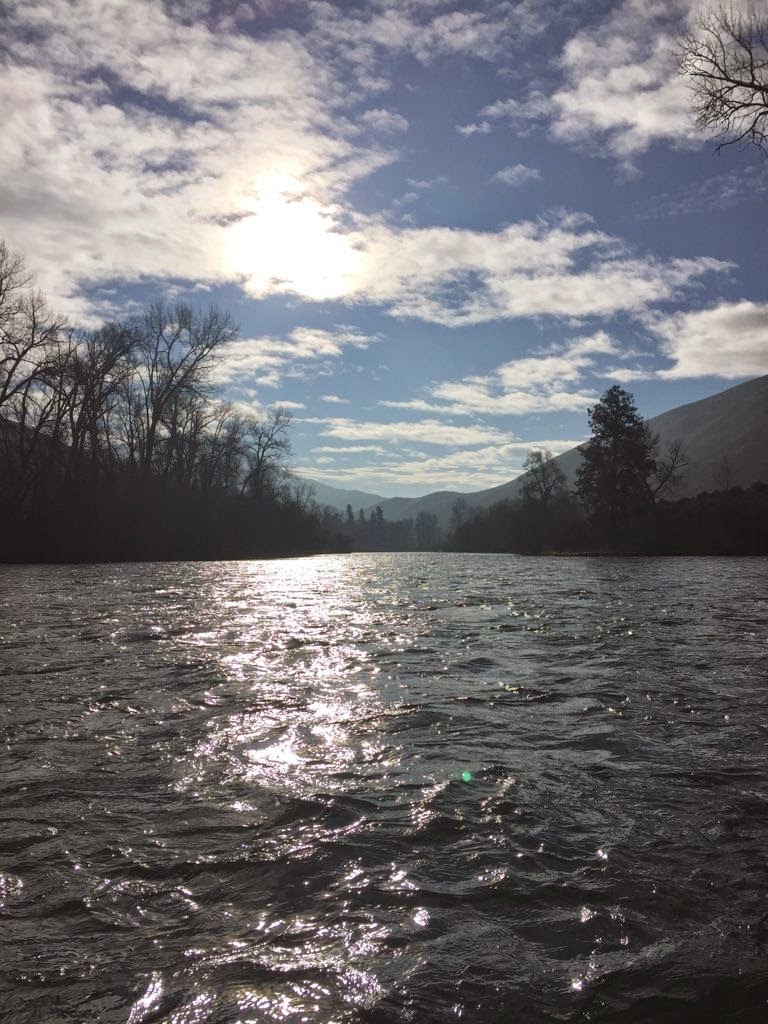
The river is back on track!
Clarity chart as of 9AM 1/28/15
@Easton 3 feet
@Cle Elum 4.5 feet
@Ellensburg 3 feet
@Umtanum 2 feet
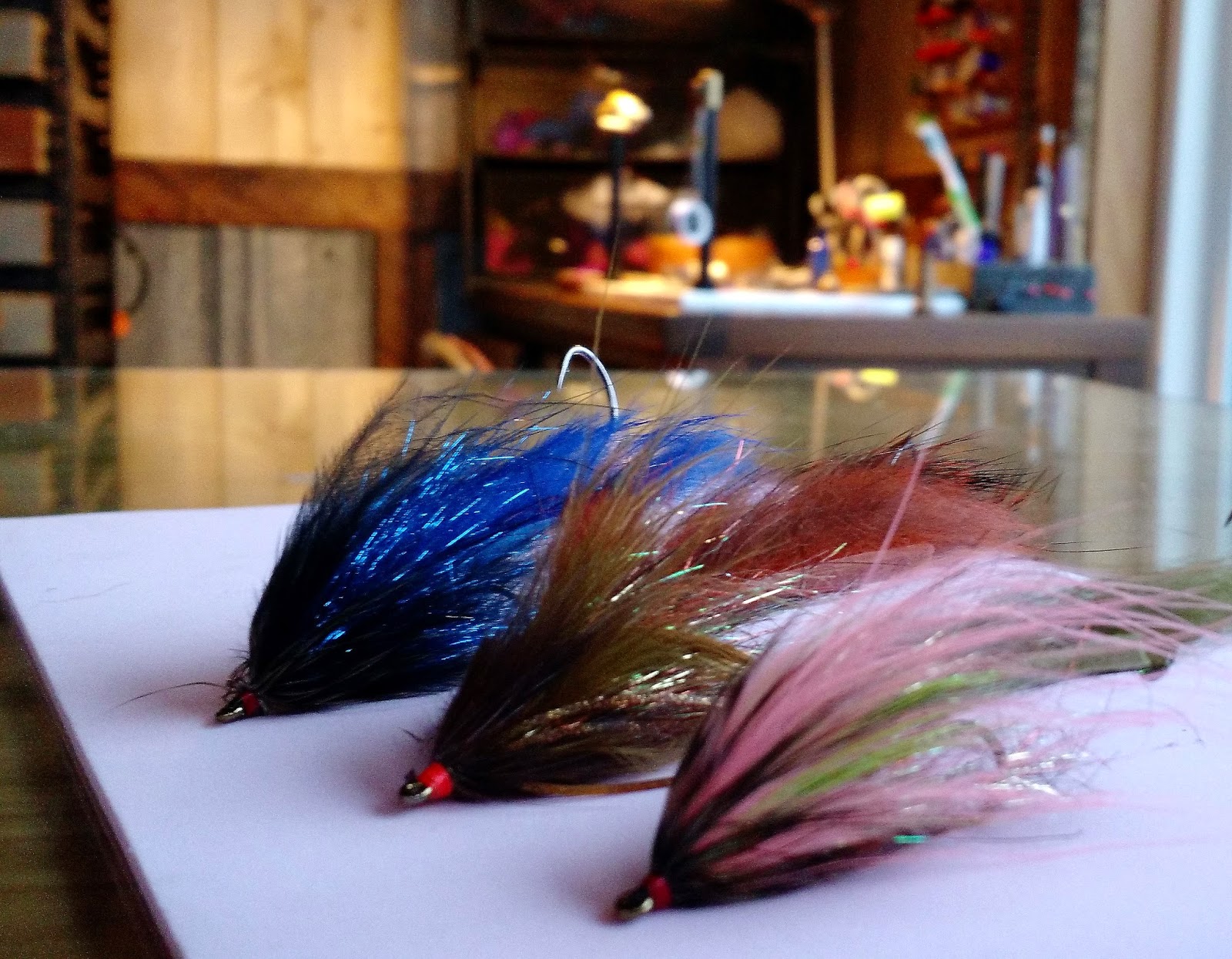
The rivers are dropping into shape currently. They should stay that way for the remainder of the week based on the weather forecast. Both the nymph and the swing have been productive recently. The fishing has been fabulous….like a broken record.
Three Bucket Bouncers;
In Back) Black and Blue
Middle) Olive and Crawfish Orange
In Front) Pink, Chartruese and olive
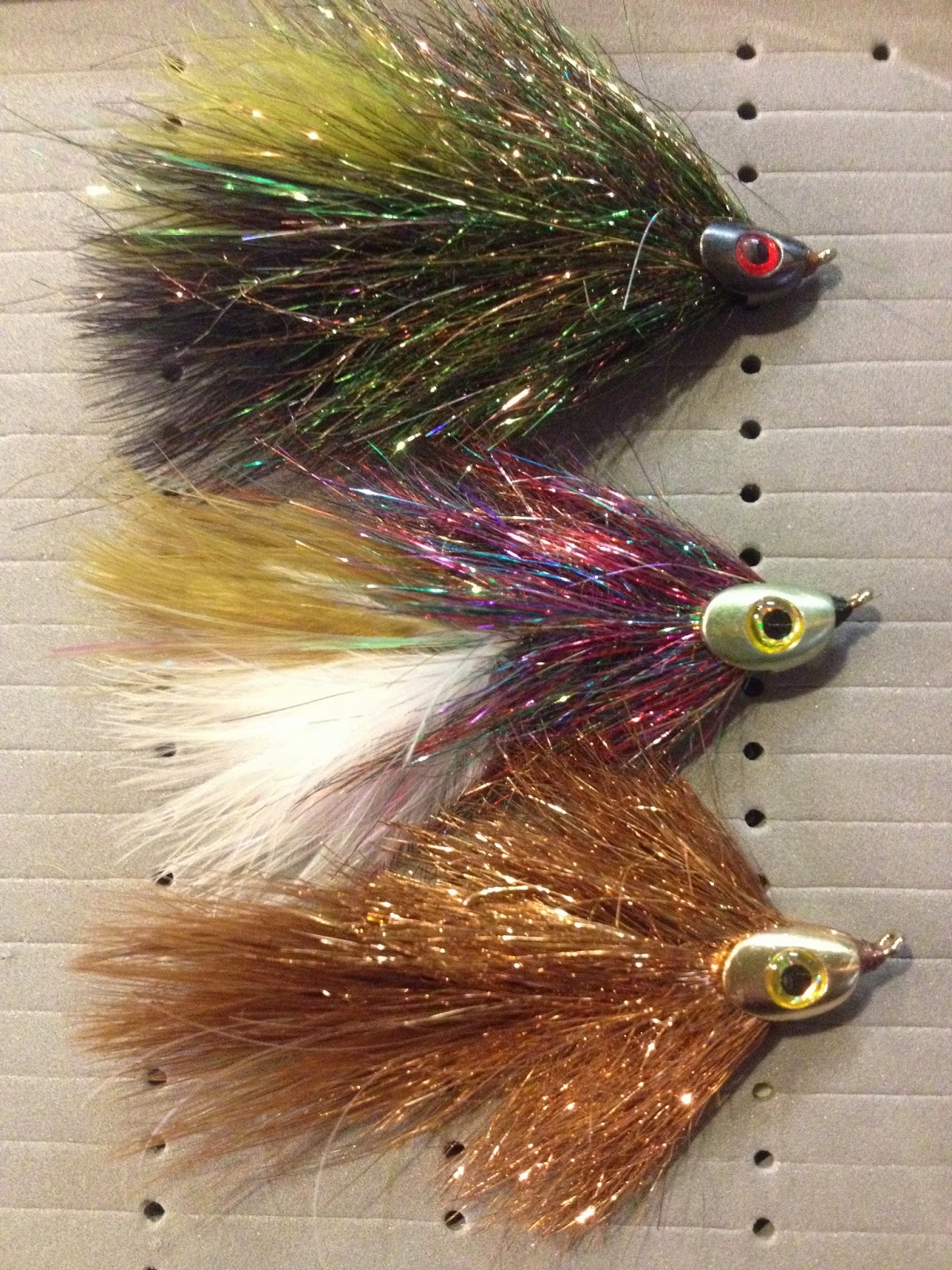
As of 2 PM today clarity was as follows;
Lower Canyon – 6 inches of vis
Farmlands – 1 foot of vis
Upper Flatlands (Above Cle Elum) – 1.5 feet of vis
We expect the clarity to change for the better, rather quickly over the next 48 hours. Prior to the rise in river flows and loss of clarity the fishing was fantastic. Like a broken record for 25 years; Nymphing a single stonefly or a stonefly and dropper have both been very effective. Droppers include, San Juan worms etc etc etc.
People don’t realize the simplicity of this time of year…. Food sources are limited for the trout, so there is not a lot of guessing as to what the ‘FARE’ is. The water is generally low and well defined. These aforementioned statistics equate to statistically good fishing.
The streamer game can be a lot of work but can pay off in big dividends. Below are a few sparkle minnow patterns that have proved effective! We have plenty of them in the shop!
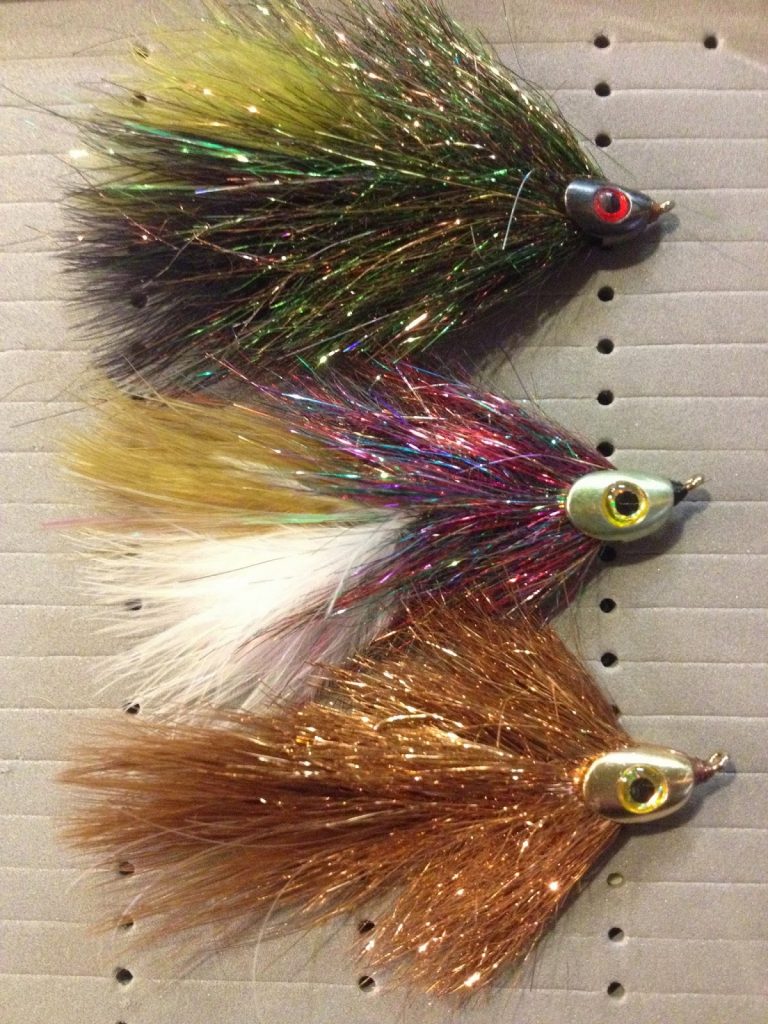 |
| Sparkle Minnows |
 |
| Recent fish for Langer |

The Yakima river was up and down with big water occurrences that added to the inconsistencies; However the trout are in great shape and with these consistent waters we have experienced over the last 4-5 days, the fishing has been great.
Stonefly Nymphs, San Juans, General Attractor Nymphs
Here is a pattern to tie in preparation for the adult action that could start as early as late February!
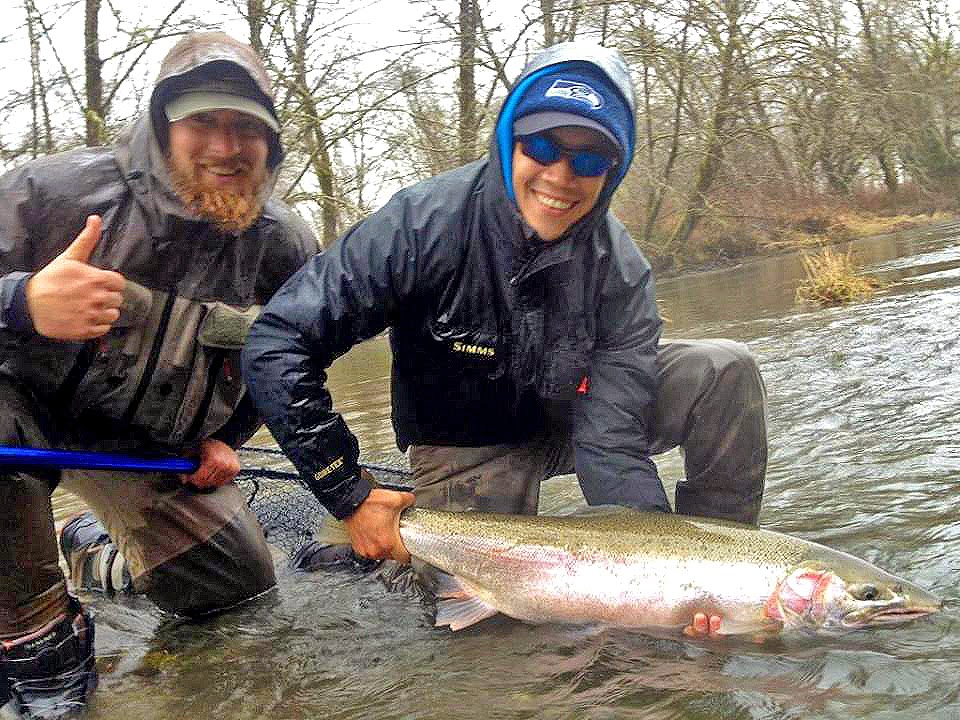
Tip of the week
Fish where the fish are. Remember, winter steelhead move a lot! Far more than there summer counterpart .
These are general statements…
Sometimes playing the water is half the battle. When the river has been dropping and clearing for ‘awhile’, fish the hole. If the river is ‘fresh’ on the drop or rise, fish the heads and tails
Weighted flies will help you get down but some of the flies I see now days are waayyyy too heavy. Use the tip to get you down,,,,not HUGE dumbbell eyes on your fly.
Fish the correct terminal gear for the type of water you are fishing. That means if you need a heavier tip based on depth and flow, put it on. Conversely, if you need a lighter tip, then put it on. Many of the runs we fish do not require as heavy a tip as you think. Although getting down is important, SCRAPING bottom the entire time is non-productive.
Depending on the time of day and river pressure; I would always suggest fishing the run with as light of tip as possible so as to swing the fly into the beach (Early morning and low pressure)
Really big flies catch fish…and they are ‘kinda cool’, but , BIG isn’t always GOOD. Remember, fish see far better than we give them credit. I will have to admit, 5 inches of Black and Blue can elicit a serious crush that keeps you coming back for more! I guess it all depends on the mood of the fish.

The Upper Flatlands are down to 2200 and definitely ‘fishable’; From the Teanaway down is ‘OK’ but still 36 hours out to be ‘better’
THE BAETIS MAYFLY-Otherwise known as the Blue Wing Olive or the Tiny Western Olive is a very important hatch on almost all of the Western streams including the Yakima. Depending on water temperatures, Blue Wings can hatch year round on many watersheds. The Yakima Baetis is generally most prolific in the spring and fall, yet they will emerge from late February until December. In fact, early summer mornings it is not uncommon to find trout sipping emerging duns shore side.
Insects tend to be cyclical and over the years the Blue Wing Olive’s of the spring have been less predictable on the Yakima. The spring BWO is generally larger then its summer and fall relatives, topping the scales at almost as large as a #16. As an angler a # 16 Sparkle Dun or Parachute Dun is a great pattern worldwide and here on the Yakima. (BWO Sparkle Parachute Dun Below)
 |
| BWO Sparkle Parachute |
When the Blue Wings are strong in the spring as they were in 2002, all heck can break loose as the hatch generally coincides with other hatches such as the Skwala, March Brown and even the Caddis. Combine this with the fact that during the early spring the trout’s metabolism is increasing, the fish are pre-spawn and therefore capitalizing on food sources and what you have makes for some great fishing conditions.
Over the years, the peak Blue Wing Olive hatches of the spring season have been that last week of March. High water temps for that week over the years have been about 47 degrees.
The glorious fact of the BWO Mayfly or for that matter any other mayfly, is that it is a sitting duck for a trout’s diet. A sitting duck in the springtime is most certainly a great thing for a pre-spawn, increased metabolism Rainbow or Cutthroat trout!